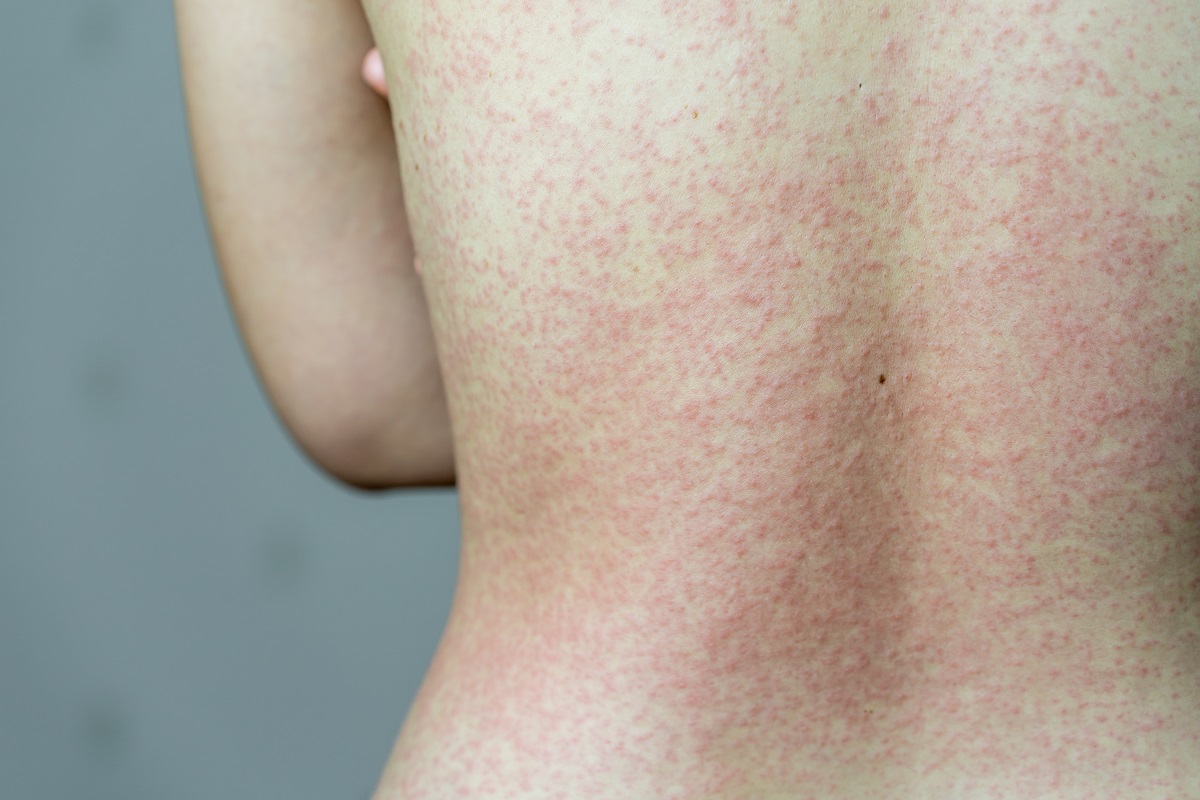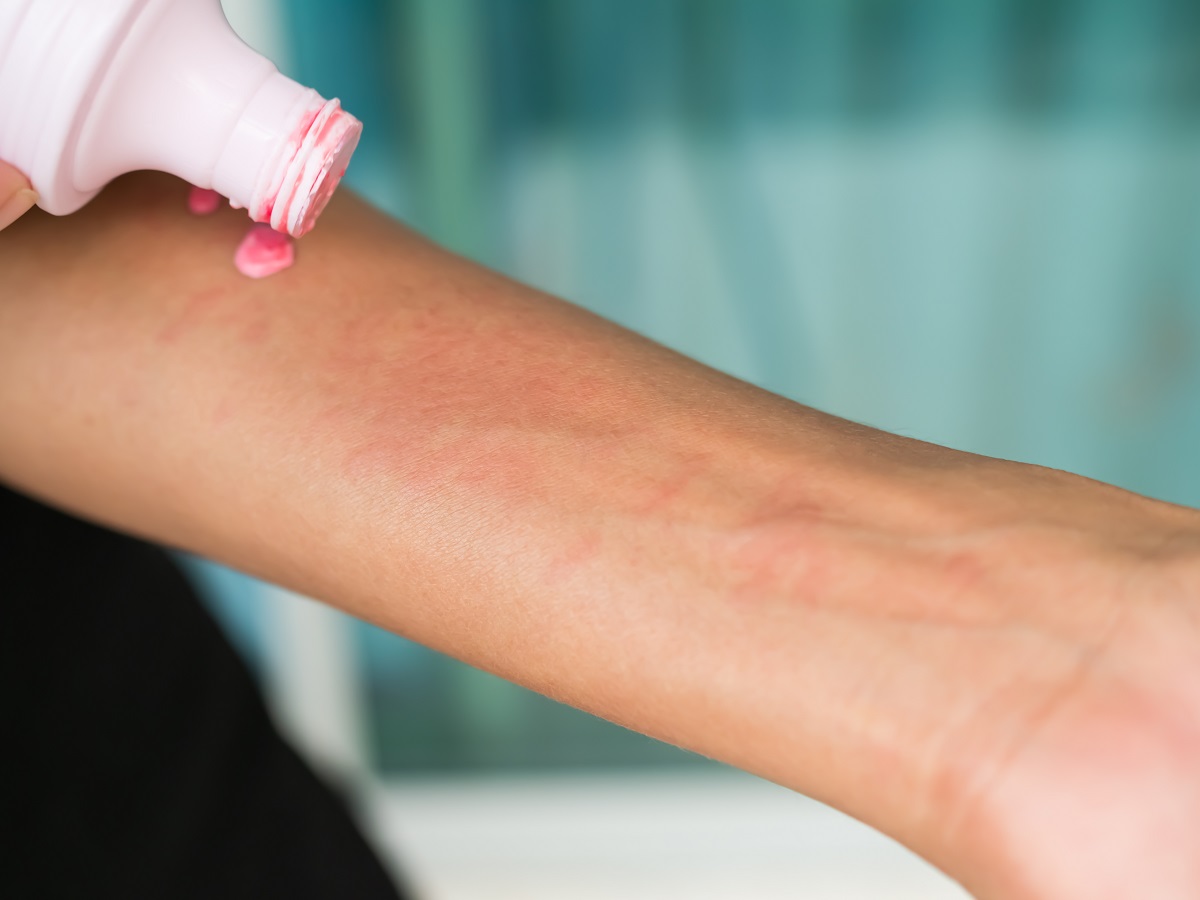This is a contagious viral infection called rubella. It is also known as distinctive red rash, German measles, or three-day measles. Commonly, it provokes either mild or no symptoms. However, rubella can provoke serious health problems for unborn babies if their mothers are infected with this virus during pregnancy.
While rubella and measles are not the same diseases, they share some symptoms including red rash. Moreover, the virus that causes these conditions is different and rubella is not as severe as measles.
Physicians usually recommend the measles-mumps-rubella (MMR) vaccine because it is highly effective against this condition. Furthermore, it provides protection from rubella for your whole life. In addition, in some countries, this viral infection is very rare or even does not exist. Therefore, the vaccine is not used everywhere. That’s why this viral infection continues to provoke serious health problems in babies if mothers are infected with this virus during pregnancy.
Symptoms
Sometimes, it may be challenging to notice the rubella symptoms in children. Usually, the symptoms appear within 2-3 weeks after exposure to the virus and last between 1-5 days. Check below some examples:
- Moderate fever (102 F or 38.9 C degrees) or lower
- Runny or stuffy nose
- Headaches
- Itchy or red eyes
- Lymph node tenderness and enlargement also can occur
- Rash that usually starts on the face and can spread fast to the trunk, arms, and legs
- Joints aches (especially in young females)
It is advised to contact a doctor immediately if you suspect your child has been exposed to this viral infection or notice any rubella symptoms.
Additionally, it is advised to check your immunity against rubella before pregnancy or receive the MMR vaccine. Otherwise, this virus can provoke serious birth defects. For instance, rubella is the most common cause of congenital deafness. Commonly, a simple blood test is enough to determine if you are immune to this virus.
Causes
The virus that provokes this disease can pass from one person to another. Usually, it travels to other people through coughs and sneezes. This virus can also spread through direct contact with infected mucus from the throat or nose. Unborn babies get this virus through the bloodstream from the infected mother.
An infected person is usually contagious for approximately 7 days before the onset of the rash and until this symptom disappears. Sometimes, the virus can go from one person to another before the infected person identifies it.
However, once you experience this condition, you are immune to it permanently.
Complications
Sometimes, women who experience rubella may notice arthritis in the wrists, knees, and fingers that lasts usually 1 month. Rarely, people with rubella can experience an ear infection or brain inflammation.
In any case, if a woman gets this viral infection during pregnancy the chances of complications for an unborn child increase up to 90%. Moreover, getting rubella during pregnancy can be fatal for the child in some cases. Check below some examples that usually children develop within 12 weeks after birth:
- Growth delays
- Deafness
- Cataracts
- Congenital heart defects
- Development problems can also occur in other organs
- Mental development issues
Prevention
Commonly, people receive the vaccine for rubella as a combination of the measles-mumps-rubella (MMR) vaccine. It also includes the chickenpox (varicella) vaccine (MMRV vaccine). Mostly, doctors recommend this vaccine the first time between 12-15 months of age and another one between 4-6 years old. While getting this vaccine, you get protection against this viral infection for life.
The vaccine given to a female during pregnancy also provides protection to the baby. In case your child needs protection against rubella before 12 months of age (such as for travel), the vaccine can be used when the baby is at least 6 months of age.
This combined vaccine provides effectiveness similar to if you will get the vaccines separately. However, the MMR vaccine gives your child protection against measles, mumps, and rubella at the same time.
Is There a Connection Between MMR Vaccine and Autism?
There are different concerns about a potential link between this vaccine and autism. In any case, according to the American Academy of Pediatrics, the National Academy of Medicine, and the Centers for Disease Control and Prevention, the link between them does not exist. In other words, scientifically there is no proof that the MMR vaccine could provoke autism.
Previous organizations suggest that is a coincidence between autism usually happens in children between 18-30 months of age, which is the time when they can get the first MMR vaccine.
When People Get Vaccinated?
Do not get the vaccine if you:
- Have received 2 doses of MMR vaccine after 1 year old.
- Doctors perform blood tests and determine that you are immune to mumps, measles, and rubella.
- Are born before 1957 because you probably have had these conditions and you are immune to them. In any case, the MMR vaccine is recommended if you do not perform a blood test to confirm the immunity.
In the following cases, it is advised to get the vaccine. Examples include:
- If you are a female of childbearing age and not pregnant
- Those who attend a trade school, college, or postsecondary school
- People who work in medical facilities, child-care centers schools, or hospital
- If you are planning to travel
In any case, you should not get the vaccine if you are pregnant or planning to become pregnant within the next 1 month. Moreover, those who are allergic to gelatin or have cancer, blood disorders, or other diseases also should not receive the vaccine without a doctor’s recommendation.
Check below the most common adverse reactions of MMR vaccine:
- Fever
- Sore arm at the site of the injection
- Mild redness or rash
- Seizures, joint pain or stiffness, severe allergic reaction, or low levels of blood cells that clot the blood (very rare negative effects)
Diagnosis
Healthcare providers usually confirm rubella by performing laboratory tests. These are done because the rash that occurs in people with rubella is very similar to other viral rashes. Commonly, physicians perform a virus culture or a blood test to check for rubella antibodies.
Treatment
In most cases, this condition does not require treatment because the symptoms are mild. However, it is advised to avoid contact with pregnant women while you are contagious (during the infectious period). This viral infection can spread to other people within 1 week after the rash goes away.
Those infants that experience congenital rubella syndrome usually need treatment that involves a healthcare team.
Frequently Asked Questions
What are the potential complications of rubella?
Commonly, the complications occur in more than 80% of children born by mothers with rubella. These include:
- Bone alterations
- Liver and spleen damage
- Mental health problems
- Brain disorders
- Deafness
- Heart defects
Immediately seek medical attention if you suspect your child has experienced any of the previous complications.
How rubella can spread to other people?
People commonly get infected through direct contact with small drops from the throat or nose (while sneezing or coughing).
Is there a difference between rubeola and rubella?
These health conditions are provoked by the same virus. While rubella is similar to rubeola (measles) it is considered a separate disease. The most common symptoms include skin rashes, upper respiratory infections, and fevers. In addition, rubella is less contagious than measles and is usually milder. Ask your healthcare professional if you have additional questions.




